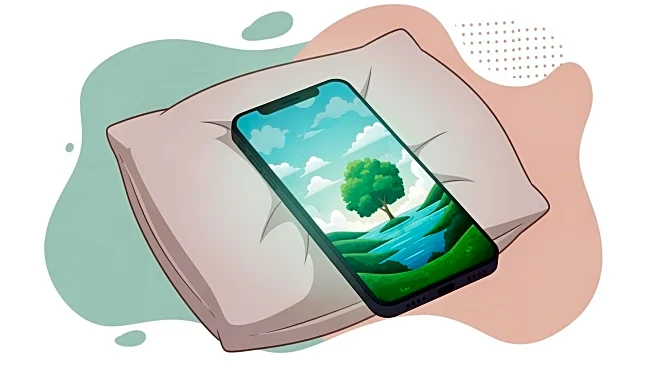What's Happening?
A randomized clinical trial has shown that the smartphone self-help app 'Happy' significantly improves self-esteem and quality of life while reducing depressive symptoms in individuals with intellectual disabilities. The study involved 99 participants,
divided into an intervention group and a control group. The intervention group experienced a notable reduction in depressive symptoms and improvements in quality of life and self-esteem compared to the control group. The app provides an alternative to traditional mental health care, which is often inaccessible to this population.
Why It's Important?
The findings highlight the potential of smartphone-based interventions to address mental health issues in populations with limited access to traditional care. This could lead to broader adoption of digital health solutions, improving mental health outcomes for individuals with intellectual disabilities. The study underscores the importance of developing accessible mental health resources, which could reduce healthcare disparities and improve the quality of life for affected individuals.
What's Next?
The success of the 'Happy' app may encourage further research and development of similar digital interventions, potentially expanding their use to other underserved populations. Healthcare providers and policymakers might consider integrating such technologies into mental health care strategies, enhancing accessibility and effectiveness.
Beyond the Headlines
The study raises ethical considerations regarding the reliance on technology for mental health care, particularly in vulnerable populations. It prompts discussions on ensuring equitable access to digital health tools and the need for ongoing evaluation of their effectiveness and safety.

















